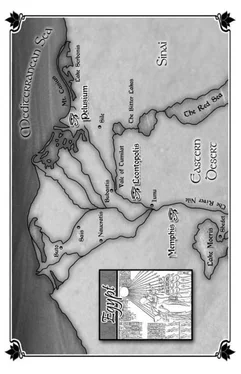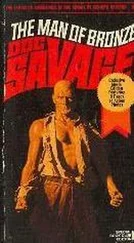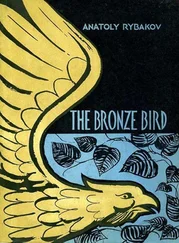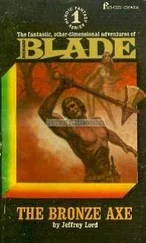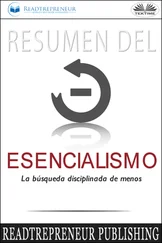Scott Oden - Men of Bronze
Здесь есть возможность читать онлайн «Scott Oden - Men of Bronze» весь текст электронной книги совершенно бесплатно (целиком полную версию без сокращений). В некоторых случаях можно слушать аудио, скачать через торрент в формате fb2 и присутствует краткое содержание. Жанр: Исторические приключения, на английском языке. Описание произведения, (предисловие) а так же отзывы посетителей доступны на портале библиотеки ЛибКат.
- Название:Men of Bronze
- Автор:
- Жанр:
- Год:неизвестен
- ISBN:нет данных
- Рейтинг книги:3 / 5. Голосов: 1
-
Избранное:Добавить в избранное
- Отзывы:
-
Ваша оценка:
- 60
- 1
- 2
- 3
- 4
- 5
Men of Bronze: краткое содержание, описание и аннотация
Предлагаем к чтению аннотацию, описание, краткое содержание или предисловие (зависит от того, что написал сам автор книги «Men of Bronze»). Если вы не нашли необходимую информацию о книге — напишите в комментариях, мы постараемся отыскать её.
Men of Bronze — читать онлайн бесплатно полную книгу (весь текст) целиком
Ниже представлен текст книги, разбитый по страницам. Система сохранения места последней прочитанной страницы, позволяет с удобством читать онлайн бесплатно книгу «Men of Bronze», без необходимости каждый раз заново искать на чём Вы остановились. Поставьте закладку, и сможете в любой момент перейти на страницу, на которой закончили чтение.
Интервал:
Закладка:
Nebmaatra's brow furrowed. "How do you know? Thus far, he has …"
"I know!" Barca snarled, and would say no more.
A subaltern of the Calasirians ushered them into Pharaoh's presence. He occupied a temporary throne room, an understatement in simplicity walled in pure white linen that diffused the morning sunlight. The golden throne itself rested on a dais of ebony wood inlaid with scenes of Pharaoh smiting his enemies. Beside the throne, Khasekhem, Overseer of Scribes, sat cross-legged on the ground, his palette and pens prepared. Ujahorresnet, resplendent in his robes of office, stood at Pharaoh's right hand. Barca stared at the old man with undisguised contempt.
I have heard the Persians have been sighted moving into position. When do you expect an attack?" Psammetichus said.
"Not before midmorning tomorrow, at the earliest."
"Are we prepared, Nebmaatra? Tell me I have not misplaced my trust in you?"
Nebmaatra unrolled his papyrus, revealing a hastily sketched map. He spread it on the dais at Pharaoh's feet. "The regiment of Amon and the Calasirians will hold the center, along this height. To their left will be the regiments of Ptah and Sekhmet, to their right, Osiris and Bast. Barca will command the left flank from the seaward hill. The mercenary units will form on him: the Medjay, the Greek regiment, the Libyans and the Nubians. I will command the right. With me will be the regiments of Khonsu, Anubis, Horns, and Neith. That's twenty-five thousand men massed in the center flanked by roughly twenty thousand apiece. Sixty-five thousand men against eighty thousand. We are as prepared as we can be, Pharaoh."
"Outnumbered as we are, do we stand even the slightest chance?" Pharaoh asked, despair thick in his voice. He looked from Nebmaatra to Barca. The Phoenician could barely recognize him as the laughing young lion of Sais. His once vigorous face seemed dissipated; the skin stretched too tight over the bone. Dark circles ringed his eyes.
Barca nodded, glancing down at the map. "We have the advantage of position and, by the will of the gods, weather. If our courage holds, victory will be well within our grasp."
"Still," Ujahorresnet spoke up for the first time, "would it not be wise to prepare a contingency plan for retreat should we be overwhelmed?"
"You speak what is in my mind, good Ujahorresnet. What about it? How will we fall back should the occasion arise?"
Nebmaatra cleared his throat. "I have not given it much thought, Majesty."
Barca's anger exploded. "Let the first blows fall before you plan our surrender! Merciful Ba'al! Why not order us to fall on our swords and get it over with?"
Psammetichus' eyes flashed dangerously. "Guard your tongue, Phoenician! You may have spoken freely around my father, but I am not Ahmose! "
"Retreat is not an option! " Barca hissed through clenched teeth. "Do either of you have the slightest idea what it is we fight for here? Well, by the gods, I'll tell you! Egypt's survival! This is the boundary stone, the line the Persians must not cross! No contingency plans! No retreats! If we dwell on those, we give our courage an option to fail, and that we cannot do! If we — we! — do not stop Cambyses here. . Barca trailed off.
"I understand," Pharaoh said, his frame deflating, his anger leeched away by the grim realization of Barca's words. "I swore to my father on his deathbed that I would not fail Egypt, and I swear it to you now. If I desert Egypt in her hour of need, may I be stricken dead and my body left unburied and unmourned." Psammetichus dismissed them with a wave. "Go, both of you. Go and see to my army."
Barca and Nebmaatra bowed and retraced their steps. Outside, in the golden sunlight, Barca shook his head. "He's right. He's not his father."
"He may be untried, but Psammetichus has heart, and heart has won many a battle on its own," Nebmaatra said. "See to your men." The Egyptian turned and headed for his command tents, where already the regimental leaders had mustered.
Barca was unconvinced. Oath or no oath, once the fighting got thick and the blood spattered Pharaoh like rain; his lack of experience would show. The Phoenician would feel better if Psammetichus bowed out of the fray and watched it from the safety of camp. At least there if his courage flagged, it would not infect the men like a plague.
A scribe's apprentice, a boy of perhaps twelve, rushed up to the Phoenician and handed him a square of papyrus. Barca eyed the boy as he ran off again, then opened the note. It was written in Jauharah's firm hand:
I must see you. Come when you can.
Below that were directions leading south and west of the Egyptian camp. Barca frowned.
The spot the Persians chose for their encampment lay threequarters of a mile from the base of the Egyptian hillocks. Priestly Magi made the proper sacrifices and libations; reconnaissance units scouted between the marshes and the sea; servants and slaves set about erecting the royal pavilion along the banks of a creek, in the shade of a palm grove. The son of Cyrus did not travel as another man would, with the bare essentials only. All the luxuries of court accompanied him, from the ladies of the apadana to the children of his noble families to an entourage of eunuchs, governesses, cooks, bakers, weavers, orderlies … an army to service an army, and all of it centered upon the person of the King.
As morning faded to midday, individual marshaling salients were staked out and an order of battle decided. Soon after, a summons came from the King's pavilion, and his generals rushed to heed his call.
A forest of carved cedar poles turned the interior of the King's pavilion into a fragrant orchard. Around the ivory and gilded wood campaign throne, a legion of slaves and servants waited on the King, seeing to his every whim as if it were the will of blessed Ahuramazda. Indeed, perhaps it was. At the very least, Cambyses of Persia considered himself a demigod. His father had rejected the idea. "In Egypt, the King may be divine, but in Persia, we are but tools of the divine," Cyrus was wont to say. Cambyses scoffed at that. He was the pinnacle of justice, the fountainhead of law, with the power of life and death over every living thing under his rule. Could a mere mortal make such a claim?
Heavy-lidded eyes gave the King an indolent look that matched his appetite for pleasures — both of the flesh and of the cup. His rugged frame and falcate nose may have marked him as the son of Cyrus, but there all similarity ceased. To live in the shadow of a man who had conquered much of the world had bred in Cambyses a certain depravity: if he could not match Cyrus on the field, he would match him at the banquet board and in the bed chamber.
Cambyses dismissed his servants with the slightest of gestures as his inner circle of generals and councillors filed in. Among these, Prexaspes held sway. He was a cunning old Mede with the face of a fox and eyes colder than a viper's. The Magus Ariarathes followed, wrapped in the self-righteous fervor of a follower of the one true god, Ahuramazda. Darius came next, moving with the self-assurance of a man who wore the truth like armor. Phanes entered behind Darius, the Greek's manner at once beautiful and deadly, like the play of lightning in a summer storm. Last came Gobartes, the envoy, his face as unreadable as a wax mask.
After displaying the appropriate level of veneration to the throne, couches were brought in and wine served, a cool aromatic vintage from the King's own stores. Despite their relaxed postures, tension clouded the air. His Majesty was in a dark mood, and men had been known to vanish during his bouts of melancholy.
"Well?" the King said.
Prexaspes spoke, his voice low and controlled. "Based on the reconnaissance, we face nine regiments of Egyptian troops and four of mercenaries. Under seventy thousand men. They have fortified the hillocks directly in front of us, and the field is strewn with all manner of debris. We cannot use cavalry, but neither can they make use of their chariot corps. If our esteemed Gobartes is correct, they are led by Nebmaatra, an able leader, but unimaginative."
Читать дальшеИнтервал:
Закладка:
Похожие книги на «Men of Bronze»
Представляем Вашему вниманию похожие книги на «Men of Bronze» списком для выбора. Мы отобрали схожую по названию и смыслу литературу в надежде предоставить читателям больше вариантов отыскать новые, интересные, ещё непрочитанные произведения.
Обсуждение, отзывы о книге «Men of Bronze» и просто собственные мнения читателей. Оставьте ваши комментарии, напишите, что Вы думаете о произведении, его смысле или главных героях. Укажите что конкретно понравилось, а что нет, и почему Вы так считаете.
